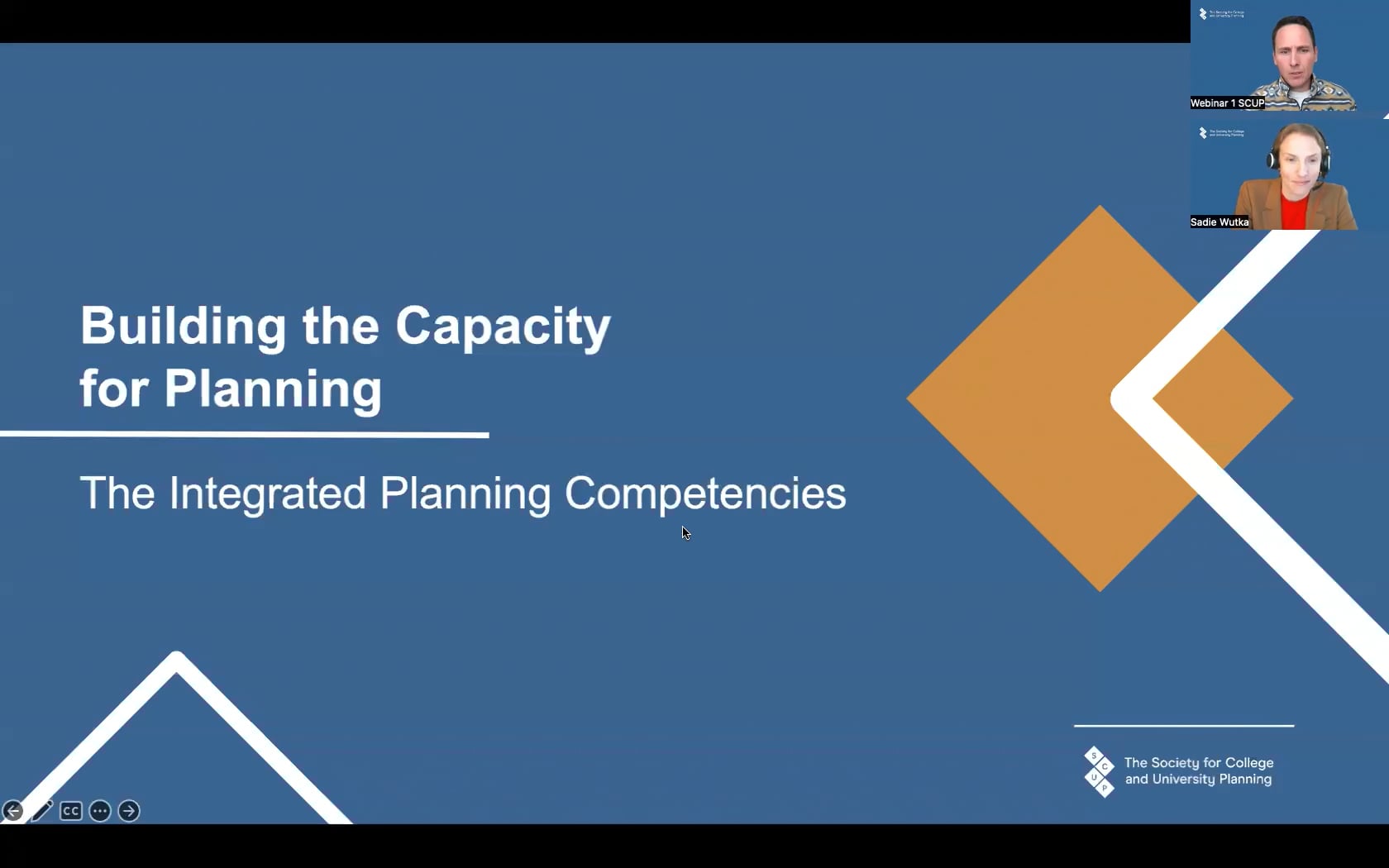

Integrated Planning Competencies
Knowledge, Skills, and Dispositions
Successfully carrying out integrated planning at a college or university requires more than planning expertise; it calls for a wide range of knowledge, skills, and dispositions. While some of the required expertise might seem obvious (like writing goals or analyzing information), some of it may be less so—particularly expertise related to “soft” skills or human skills, like communication or collaboration.
The Integrated Planning Competencies catalog the knowledge, skills, and dispositions—both obvious and inconspicuous—that underpin successful integrated planning.
Explore the Competencies Now
Click on an area below to view its competencies:
What Are Integrated Planning Competencies?
Competencies are the knowledge, dispositions, and skills an individual needs to perform integrated planning in higher education.
Knowledge: The information that must be acquired and synthesized for effective practice
Skills: The abilities and behaviors that must be mastered for the effective execution of tasks
Dispositions: The attitudes and values that must be mastered for effective practice
How the Competencies Are Organized
Competencies are grouped by topic area. Each competency includes a definition and a list of specific tasks, skills, knowledge, and dispositions related to that competency. Related resources are included to inspire ideas and directions for individual and team professional development.
An example competency:

Tailored Competencies: Two Key Integrated Planning Roles
While all positions across campus can leverage the Integrated Planning Competencies, we’ve identified competencies for two different roles:

Institutional Planner Role
The person tasked with leading integrated planning in the institution, or the person responsible for coordinating and supporting planning activities institution-wide–in other words, the institution’s resident planning expert.
Examples:
Director of Planning and Institutional Effectiveness
Chief Planning Officer

Unit Leader Role
The person responsible for a unit in the institution. Depending on the institution, a unit can be a college, academic department, or non-academic department. The Unit Leader is critical to alignment and implementation of institution-wide plans and for planning within their unit.
Examples:
Dean of the College of Arts and Sciences
Vice President of Student Affairs
Competencies or tasks specific to only one role are indicated with a label.
Ideas for Using the Competencies
- Prepare a planning team or committee for an upcoming planning process.
- Facilitate institutional discussions about readiness for planning.
- Inspire ideas and directions for individual professional development.
- Inform job descriptions for roles with planning responsibilities.
Dig in Today!
Explore the competencies by selecting an area from the list above.
Or, get started with the Planning area.
Download Your Copy
Download a PDF of the Integrated Planning Competencies, which includes Methodologies, Bibliography, and Acknowledgements:
Featured Webinar

Watch the recording of “Building the Capacity for Planning: The Integrated Planning Competencies,” presented by Sadie Wutka, SCUP’s Director of Content Development. Sadie provides an overview of the Integrated Planning Competencies, covers the research and development process behind the competencies, shares how SCUP members have started to use the competencies to support integrated planning at their colleges and universities, and more.


